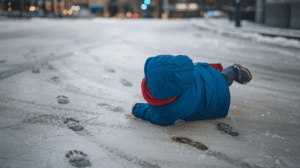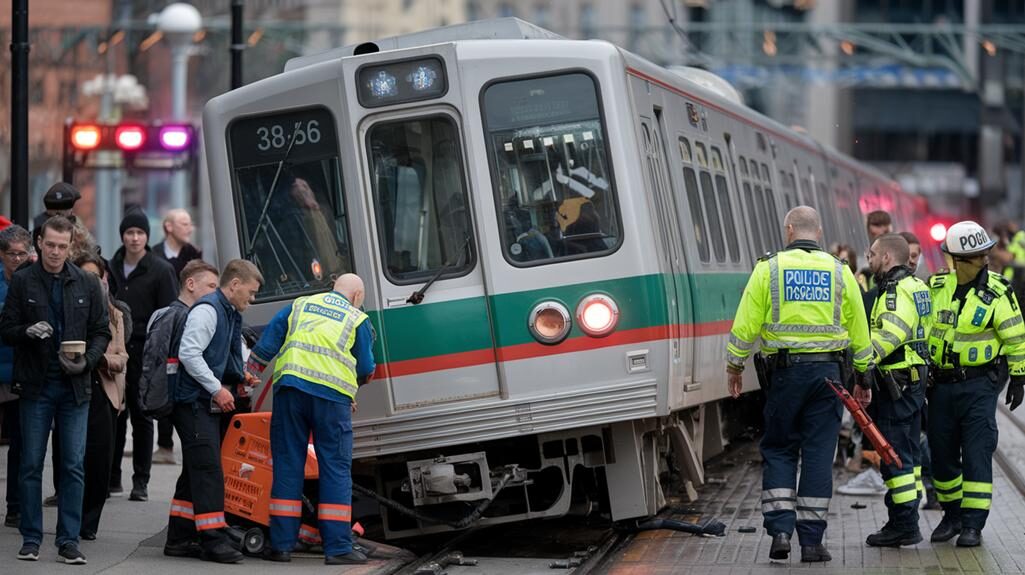If you’ve been injured in a slip and fall accident at a Stop and Shop store in Boston, we understand that you’re likely seeking guidance on your rights and the process of filing a claim. At Jason Stone Injury Lawyers, our experienced Boston Stop and Shop slip and fall lawyers can help you understand your options.
If you’ve slipped and fallen due to the negligence of Stop and Shop, you may be entitled to compensation for your injuries. To learn more about your rights and the next steps to take, consider consulting with a Boston slip and fall accident lawyer. We can help you determine the best course of action to pursue the compensation you need for your injuries.
Slip and Fall Accident Causes in Boston
Wet floors, in particular, can be a significant hazard, as they can cause you to lose your footing and fall. You may encounter wet floors in various locations, including supermarkets, restaurants, and stores, where spills or leaks can occur.
When you’re walking in a public place, you expect the floor to be safe and even. However, if the floor conditions are hazardous, you may be at risk of slipping and falling. You should be mindful of your surroundings and watch for warning signs, such as “wet floor” signs, which can indicate potential hazards.
You can take steps to minimize your risk of slipping and falling by being aware of your environment and taking necessary precautions. If you do experience a slip and fall accident, it’s important to document the incident, including the floor conditions and any witness statements. Our Boston personal injury lawyer can help determine the cause of your accident.
Injury Compensation Rights
You have the right to seek compensation if you’ve been hurt in a slip and fall accident at a Stop and Shop store. Our team of Boston Stop and Shop slip and fall lawyers can help you understand:
Injury Rights
The laws in Massachusetts provide people who’ve been injured in a slip and fall accident at a Stop and Shop with certain rights. You have the right to seek compensation for your injuries, and it’s important to comprehend these rights to increase the chances that you receive the compensation you need.
As you go through the process, consider the following:
- You have the right to report the incident to the store management
- You’re entitled to receive medical attention immediately
- You can document the scene of the accident for future reference
- You should preserve any evidence related to the incident
Claim Process
Generally, going through the claim process for injury compensation rights after a slip and fall accident at a Stop and Shop requires careful attention to detail. You’ll need to gather and organize claim documentation, including medical records, incident reports, and witness statements.
As you go through the claim process, you’ll need to collect and preserve claim evidence, such as photos of the accident scene, security footage, and physical evidence like torn clothing or broken items.
You should also keep a record of any communication with Stop and Shop representatives, including dates, times, and details of conversations.
By carefully compiling and maintaining claim documentation and evidence, you’ll be better equipped to support your claim and pursue the compensation you’re entitled to. You must guarantee that all documentation and evidence are accurate, complete, and submitted in a timely manner.
Hiring a Boston Stop and Shop Slip and Fall Lawyer
Hiring a lawyer can greatly impact the outcome of your Stop and Shop slip and fall case, as we will handle negotiations with the insurance company and help you handle the legal process. You’ll benefit from our experience with filing a claim, which can be a complicated and time-consuming process.
When hiring a lawyer, you should schedule a legal consultation to discuss your case and determine the best course of action. During this consultation, you’ll have the opportunity to ask questions and gain a better understanding of the legal process. Your lawyer will assess your case, identify potential weaknesses, and develop a strategy to strengthen your claim.
You should choose a lawyer with experience in slip and fall cases, particularly those involving Stop and Shop. They’ll be familiar with the company’s policies and procedures, which can be beneficial when filing a claim.
Our team of Boston Stop and Shop slip and fall accident attorneys work on a contingency fee basis, so you never need to reach into your pocket to pay us.
Insurance Company Negotiations in Boston
Several factors influence the outcome of insurance company negotiations in a Boston Stop and Shop slip and fall case. You’ll need to ponder the severity of your injuries, the extent of your medical expenses, and the impact of the accident on your daily life.
When engaging in settlement negotiations with the insurance company, you should be prepared to provide detailed documentation of your injuries and expenses. Some important factors to consider include:
- The amount of medical expenses incurred as a result of the accident
- The impact of the accident on your ability to work and earn a living
- The extent of any permanent injuries or disabilities
- The amount of pain and suffering you’ve experienced
- The policy limits of the store’s insurance policy
You should carefully review the insurance company’s offer to confirm it’s fair and reasonable. If the offer is too low, you may need to negotiate further to reach a settlement that reflects the true value of your claim. It’s important to understand the policy limits and how they may affect the settlement negotiations.
Contact Our Boston Stop and Shop Slip and Fall Lawyer
You’ll need a Boston Stop and Shop slip and fall lawyer to evaluate your case. We will assess liability, gather evidence, and negotiate with insurance companies. At Jason Stone Injury Lawyers, we understand the importance of holding responsible parties accountable for their actions.
Contact us today for a free consultation and get the Stone Cold Guarantee®.
Not Trusting What You’re Being Told?
Better Phone Stone
800-577-5188
 START MY NO OBLIGATION CONSULTATION
START MY NO OBLIGATION CONSULTATION








